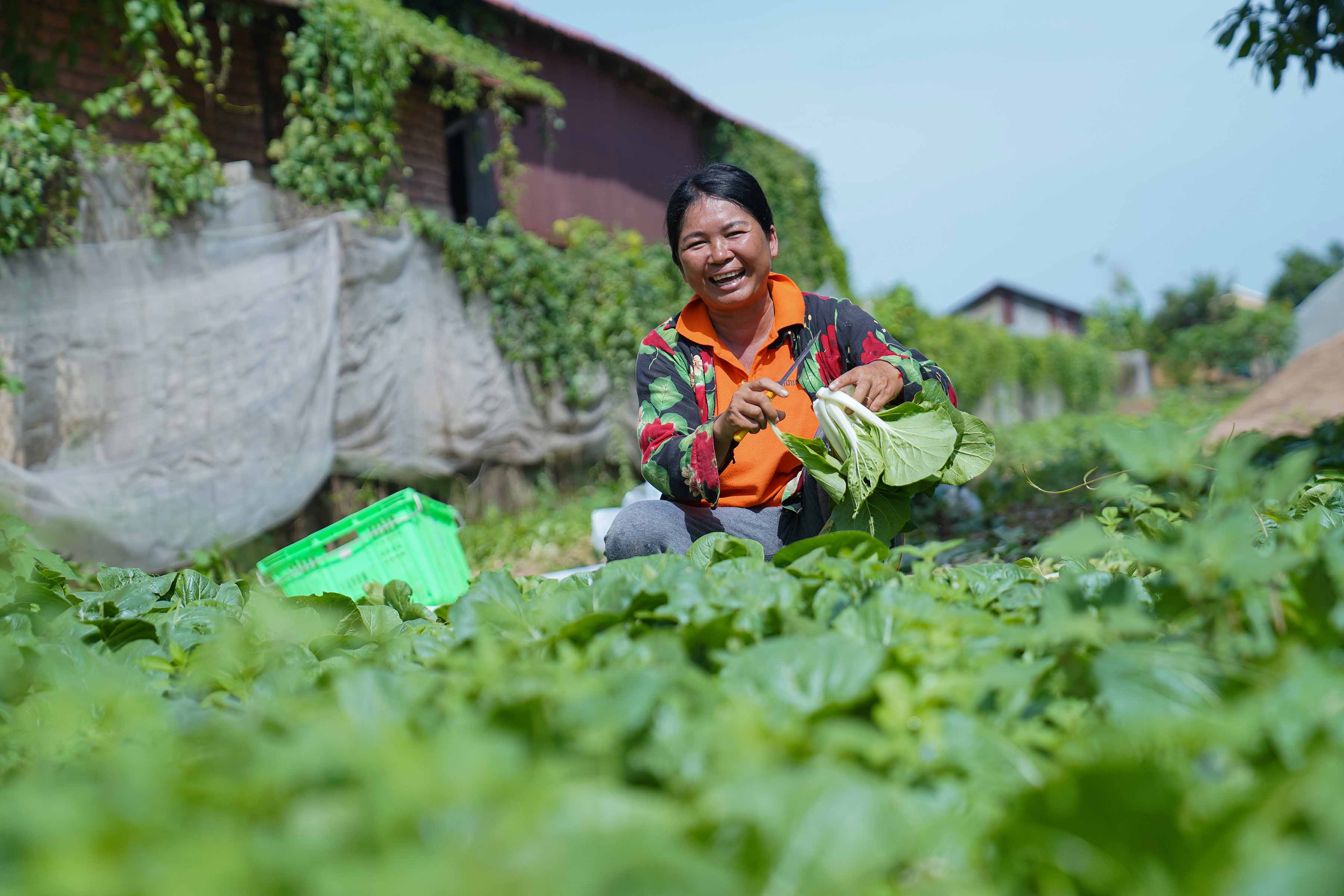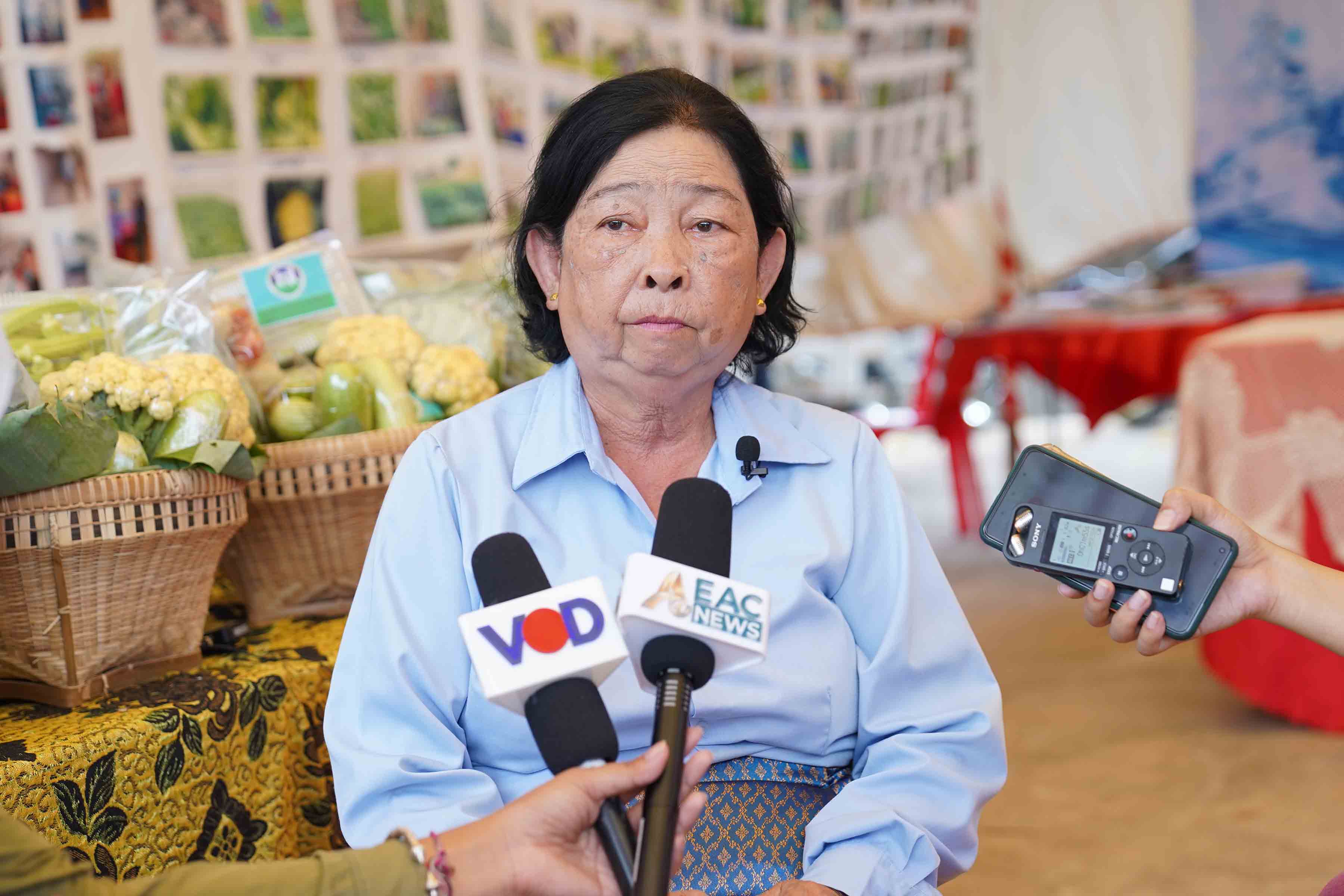PHNOM PENH: Farmers in two provinces in Cambodia have turned to growing organic vegetables and fruits using compost instead of chemical fertilizers, which has helped to improve the lives of farmers.
Some farmers from seven districts in Takeo and Kandal provinces have started to grow mixed crops on their land to get all-season vegetable yields. They use home-made compost and natural pesticides for the vegetables.
Pok Sreang, a farmer in Svay Proteal commune, Saang district, Kandal province, described how in her farm there are many kinds of vegetables, including cauliflower, kale, bok choy, curly cabbage and spinach, which are all marketable and harvestable during all seasons. She said that her life has also improved a lot from growing organic vegetables, with access to enough income to support her children's daily lives and education.
She said that every day she harvests vegetables and sells them to the Agriculture Cooperative, allowing her to earn between 40 to 50 thousand riel a day. She added that she has used the profits to buy tuk tuks to transport her vegetables and put some money back into the community.
She said, "The benefit is that we can buy things like motorcycles and tuk tuks, and it’s a relief that my children can go to school [...] It is difficult to compare to the past. At that time, I would be thinking in the evening about how I have to borrow money in the morning from someone else to let my children to go to school, and there would be nothing for me to sell."
She added that after she found success in growing organic vegetables, she wants to now expand her farm and learn more about organic vegetable growing techniques to make her business bigger and better.
She said that her success in growing vegetables came after she received training from World Vision on the Mase2 project, which made her vegetable growing practices more productive, as she learnt about organic vegetable growing techniques and how to grow your business.
World Vision's Mase2 project focuses on two goals: first, to provide farmers with a small and growing business model that can help them make more profit in their production; second, focusing on poor smallholder farmers who face significant difficulties in making profits, especially poor female farmers.
At the Svay Proteal Agricultural Community in Hope exhibition, held on 31 March 2022, World Vision Cambodia Executive Director, Leng Virak, said that the Mase2 project was established to benefit the people and raise their awareness on organic fruits and vegetables, especially among farmers, buyers and brokers, to create more confidence in healthy eating practices.
The World Vision Executive Director said, "The most important benefit is the health benefit. Producers and growers can gain technical knowledge, knowledge in business, financial gain and the motivation of his contribution to the welfare of the people and children. Because this (Svay Proteal Agricultural Community) is not just a place to produce and supply the demand, but it is a place where we supply vegetables to Deum Kor market in Phnom Penh. We all eat vegetables here, if vegetables are not safe, we also have no confidence in eating."
The head of the Svay Proteal Agricultural Community in Hope, Touch Pech, said that the community was established in 2015 and now has more than 300 families growing vegetables, who can produce more than 100 tons of vegetables per day.
She added that through World Vision's Mase2 project, her community has grown even more, with people in the community becoming more knowledgeable about chemical-free cultivation techniques and marketable vegetable yields.
She said, "In the past, no organization or ministry or project came down to train people in growing vegetables, but now there is support and cooperation from World Vision's Mase2 project. From the ASPIRE project, I learnt the techniques to grow vegetables for sale. Previously, I had no market to sell my vegetables because I used chemicals. Until now, we have received a convenient market, organic vegetable growing techniques, training courses on growing vegetables, and our vegetables are now sold at a high price."
The Mase2 project, funded by the Australian government over the past five years with a total aid provision of US $4 million, is scheduled for completion in June 2022. The project works in two districts in Kandal province (Saang and Khsach Kandal districts) and in five districts in Takeo province (Samrong, Kirivong, Koh Andet, Borey Chulsar and Traing). The project has helped to increase the productivity and profits of 1,702 poor farmers by teaching them how to grow organic vegetables in 13 communities.
The project works closely with the government and private institutions to provide quality support to farmers, through methods such as providing seeds, teaching new growing techniques, and enabling greater market access.























